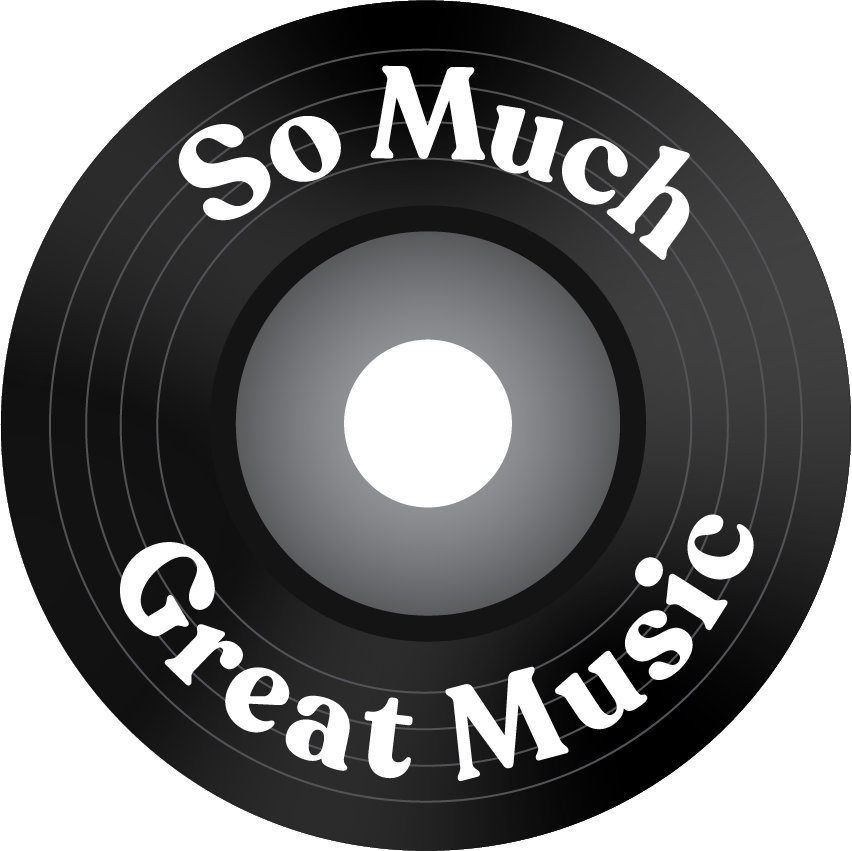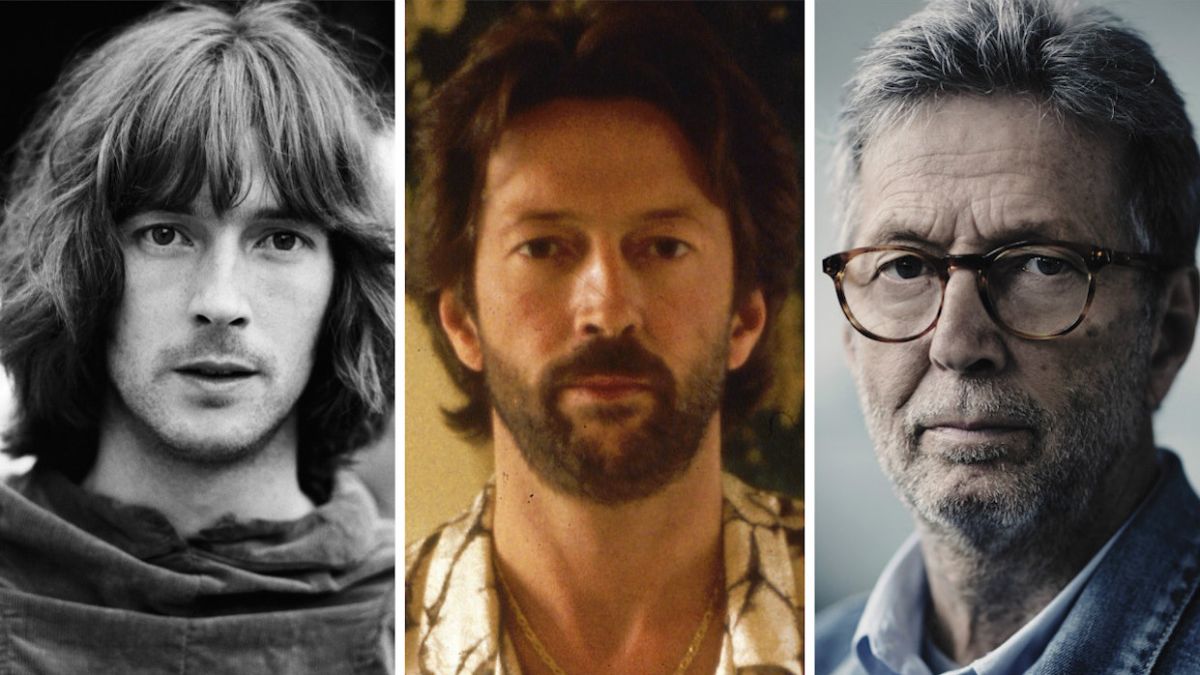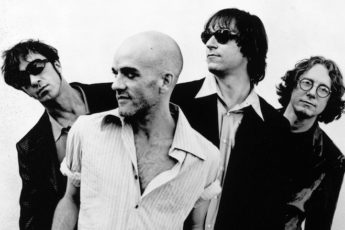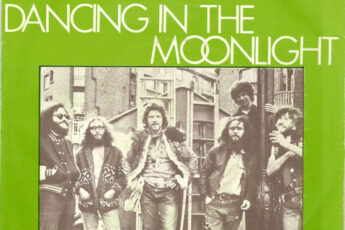Eric Clapton is overrated. Sorry, but it’s true.
Friends, I’ve given this a lot of thought, considered the evidence, and weighed the data. And I’ve reached the following inescapable, albeit probably surprising, conclusion:
Eric Clapton is overrated.
Alright, take it easy, settle down. Let me explain a bit.
Look, no one has to tell me about Clapton’s incredible, storied, and vastly varied career. It’s pretty amazing, no doubt about it. And his well-revered place in rock lore is long ago and deservedly secure. But strictly in terms of how he’s typically placed historically – generally as a musician as well as specifically as a guitarist – he’s just…overrated.
Now, this isn’t about Clapton’s recent – and continuing – forays into ostrich-headed libertarian “activism,” if you will, along with his compatriot in anti-lockdown sentiments, Van Morrison (I think they’re both misguided, tin foil hat nuts, but that’s for another story).
Eric Clapton, now
No, it’s about his music; for starters, the music he’s actively making, and has largely been producing for going on three decades. It’s drab. Unexciting. Devoid of inspiration and lacking any real sense of energy. In short, it’s almost astonishingly average. As one positive grasp for this quite obviously aging rocker,¹ you might describe it as tasteful, though that’s hardly an accounting to which a rock star of any vintage could possibly aspire. As a more bleak take one would more likely just label many, many years of his creative output as utterly unremarkable. Or you might just say “meh.”
I always post the featured song at the end, but…let’s just get this over with. Here’s the brand new tune Clapton released last week, an apparent attempt at resolute protest that instead comes off with the firmness of porridge.
I don’t know how far you may have gone with that warmed-over mush, but if you only made it as long as the opening stanza – “This has gotta stop / Enough is enough / I can’t take this BS any longer” – I mean, isn’t that pretty childish? Or really, just amateurish?
Eric Clapton, then
By any reasonable measure, Clapton’s best collection of songs ever – both lyrically and musically – were created just over 40 years ago on the classic “Layla and Other Assorted Love Songs,” many of which (including the lionized title track), it could be noted, were actually co-written or old blues covers, and nearly all of which were concerning his unrequited infatuation with the wife of another man, who happened to be his supposed best friend.² So, I don’t know, points for that, I guess?
His subsequent and intensely anticipated solo career began with a series of mostly outstanding albums throughout the ‘70’s, but with a couple of notable exceptions his output since has been a steady descent into innocuous pop fluff reminiscent of the earliest and least ambitious period of easy-listening John Mayer.
While Mayer, for one, has metamorphosized first into a blues phenom compared respectfully (albeit prematurely) alongside Stevie Ray Vaughan, and now, in recent years co-fronting with Dead & Company, basically into Jerry Garcia, Clapton has unremittingly regressed to an amorphous oddity only vaguely resembling a rock star, making entirely undistinguished music in dad jeans and boat shoes. And speaking of such nautical footwear, for the bulk of Clapton’s lengthy solo career wouldn’t his music often be a more apt fit on “Yacht Rock” than “Classic Rock” programming? Not that there’s anything wrong with that – I enjoy Michael McDonald, Boz Scaggs, Steve Miller and Toto as much as the next guy, but you don’t exactly bring them up when discussing rock’s greatest-evers.
Great? Yes. But still overrated (even he knows it)
So before we go any farther, let’s assess our key term: overrated. Remember, I’m not crazy enough to suggest Eric Clapton isn’t a legendary figure in the worlds of rock and blues. I’ve got a huge Clapton record collection. I’ve seen him live many times. I’m a definite fan. But starting with a simple definition, here’s a closer look at “overrated.”
“Rated or valued too highly”
“Having a higher opinion of (someone or something) than is deserved”
“Considered to be better or more important than (they) really are”
That last one especially hits the mark, in a literal sense. Clearly I’m not saying he isn’t one of the greats. He is. But his de rigueur ranking in just about any critic’s or fan’s poll in roughly the last half century as #2 (behind Jimi Hendrix) for best guitarist ever is simply too high. Way too high. Realistically I’d put him in the top 20-25 guitarists, but frankly the idea that he’s one of the nonpareil few to ever play is silly. This image of Clapton was forged in graffiti spray painted on a London wall in the late ‘60’s declaring “Clapton is God” and has, in large part, driven his reputation ever since. To his credit, even Clapton himself has long demurred on such preposterous characterization or its accompanying distinction of qualifying him atop tens of objectively more superlative or even formidable players. Clapton, in fact, was known to have been embarrassed by the fabled slogan, saying in 1987, “I never accepted that I was the greatest guitar player in the world. I always wanted to be the greatest guitar player in the world, but that’s an ideal, and I accept it only as an ideal.” In the period just preceding his part in the formation of more ensemble-minded Derek and the Dominos, Clapton actually described having become so tired of what he self-mockingly referred to as the idea of his “pseudo-virtuosity.”
Does being a 3-time R&R HOFer matter?
Of course I understand that Eric Clapton is highly acclaimed, rightfully so, and, as many readily exclaim, is the only 3-time inductee to the Rock and Roll Hall of Fame: as a solo artist, and as a member of both the Yardbirds and Cream. Still, I feel it must be pointed out that this fact is surely more a function of his curious itinerance than anything which should meritoriously set him above other inductees. In reality, Clapton spent just 1-and-a-half years and under 3 years, respectively, with his HOF bands. In between those two he also had a brief run with John Mayall & the Bluesbreakers, and following the rapid demise of Cream sustained even briefer spurts with Blind Faith (1 album), Delaney & Bonnie (sporadic sideman appearances), and of course, Derek and the Dominos (also 1 album). Is he somehow on a higher strata or deemed of greater value just because his peculiar path led him to be party to what were ultimately an odd number of short stints or short-lived bands?
Notwithstanding any of that, though, it just seems objectively fair, at least to this observer, to note that throughout it all there were, and are, scores of players more creative than Clapton, more imaginative, more interesting. Clapton’s guitar-playing bag of tricks has always been impressive but it just isn’t that vast. Same old tricks, same old licks. When he solos it typically straddles the bounty of his earned expertise with that of banal familiarity. At certain times it’s just bland, like unbuttered toast; satisfying but largely spiritless. Speaking once about Stevie Ray Vaughan, Clapton said “I remember being fascinated by the fact that he never, ever seemed to be…lost in any way. Or took a pause to think where he was gonna go next, it just flowed out of him. He seemed to be an open channel and music just flowed through him, and never seemed to dry up.” Though ardently admired by Stevie Ray and untold more, candidly I don’t know that the same could readily be recited about Clapton.
A more fitting description
Clapton’s last memorable work was literally multiple decades ago, and to me his last imposing album was 1994’s “From The Cradle.” Some rock fans I know felt it was dreary, especially live, including at a particularly slow-moving, hit-absent, mid-’90’s concert at Madison Square Garden. And this lifetime blues fanatic was an admittedly biased judge towards that record of reinvigorated covers of blues classics, and striking tributes to many of the blues artists formative in Clapton’s career (Muddy Waters, Freddie King, Willie Dixon, Lowell Fulson). But one thing I can confidently say is that the recording was impassioned. It had bite. His playing, and the production, had a tangible fierceness to it. An animated fire. Nothing in the ensuing nearly 30 years really has. He’s made nine albums since then (including, most recently, a schmaltzy Christmas album. It’s true). Can you recall any of them? Go ahead, I’ll wait. Nah, I didn’t think so. 19th century Austrian composer Gustav Mahler³ once said, “Tradition is not the worship of ashes, but the preservation of fire.” Clapton’s musical fire went out a long, long time ago. Now, sadly, he just seems burned out.
“This Has Gotta Stop” is Clapton’s brand new title. About that, I’d have to agree: this two generation-long period of largely coasting mediocrity and conspicuous displays of guitar-okaying prowess does have to stop. The truth is Clapton is not, and has never been, God. In retrospect, those long-ago, infamous London denizens attempting proper recognition in graffiti would have done well to include but one more “o” in their spray-painted homage. Clapton is not God, Clapton is good.
¹The man known affectionately as “Slowhand” has somehow quickly become 76.
²Pattie Boyd and George Harrison, respectively.
³SMGM musical reference points are all over the map!
Let’s end on a high: Here’s Clapton at his dynamic (and most recent) apex.







Rob MacMahon
September 13, 2021 11:20 amSimply put…YES. He has always been overrated. And his solo career is full of shite.
Keith Putnam
September 14, 2021 12:16 pmYes, yes, and yes again! One more point to add while we’re piling on mr. okay, as host of his Crossroads Guitar festival (s), he typically occupies the least memorable segment of the day there, too, lol.
So Much Great Music
September 14, 2021 5:16 pmAn excellent point. I’ve attended numerous Crossroads Festival events, and full marks to Clapton for offering his audience and an important platform to many lesser-known guitarists. But it’s true, he just doesn’t seem to have the same juice as many others, and is commonly outshined. And if I had to guess, I’d say even he knows it.
Dean S Carlsen
January 4, 2022 6:36 pmRegarding “From The Cradle” why anyone would want to hear Eric try to sing a Muddy Waters tune, or a Freddie King tune or prefer his version of “Blue Before Sunrise” over Albert King’s? The guitar playing was good, but I listened to that about three times. I have never stopped listening to Albert King, Muddy Waters, Howlin’ Wolf, Freddie King.
So Much Great Music
January 6, 2022 10:20 amThe originals are sublime. I happen to think the modernized production values and Clapton’s inspired playing made “From The Cradle” an exceptional album. Sadly, as noted in some detail, that has not been rivaled by him in quite some time.
Keith Putnam
August 7, 2022 10:24 amCouldn’t agree more, except I’ve been saying it since the late 70’s. The long, not too slow, ooze into unremarkable schmaltz, started way back with ‘There’s One in Every Crowd’ – featuring appropriately a worn-out looking mutt on the cover… Hilarious writing style, great read – take a bow.
So Much Great Music
August 8, 2022 1:40 pmMany thanks, Keith. Sadly, “Unremarkable Schmaltz” could really be the title to a Clapton re-issue collection of the last several decades.
L karamazov
June 19, 2022 5:47 pmThis guy had to virtue signal and take a dig at claptons vaccine views even though it had nothing to do with anything, probably just so he can score points with the AI. I mean, what a sniveling clown, making fun of a man who is telling you he’s been injured by the vaccine…. I guess it was all in his head.
So Much Great Music
June 19, 2022 6:58 pmThe point of the piece was that Clapton, while obviously having achieved an amazing career, is overrated (see the very first line). As an aside an allusion was made to his recent vaccine views which are regarded by most as ill-considered and irresponsible (at least those who believe in science), and highly hypocritical to boot – see his grandstanding vow never to play at venues requiring proof of vaccination, then doing just that less than two months later. Such a convenient reversal might actually make Clapton the “sniveling clown,” but I’ll leave that morality question to be pondered by you and your brothers, Karamazov.
Brian
August 30, 2022 11:25 pmIt’s very clear that if he had not said a word about his views on vaccination this article would not even ever be written.
There are lots of overrated musicians. Bruce Springsteen likes vaccines but he’s definitely overrated.
I don’t really care and I couldn’t care less the political opinions of artists and actors. These people are performers and that’s what they are good at.
Just because somebody plays the guitar, sayings or acts doesn’t give them any political weight whatsoever.
So Much Great Music
August 31, 2022 10:27 amYou may think so, or wish so, but it’s clearly not true. Celebrities – be they musicians, actors or whatever – do have a platform above that of average citizens, deserved or not. How they choose to use that opportunity, or not to, is obviously up to the individual. But they’re entitled to express opinions, and their words do carry weight. Having said that, the article is about Clapton’s music, nothing more, and an analysis of its relative worth. An opinion, in other words, for which a fair amount of supportive thoughts are offered, rather than, say, yours that “Springsteen is definitely overrated” which provides, well, none.
Jose Bevevino
August 23, 2023 2:20 pmOf course he’s not a virtuoso but he knows where to put the notes. To my taste I would classify him in the same shelf as Gilmour but a step behind. Listen to his work in that Roger Waters solo album, it fit perfectly.
Canadian
September 30, 2023 1:09 pmIt’s undeniable and definitively proven that the V is a toxic death shot that has so far killed/disabled a billion people. Sudden death, VAIDS, Myicarditis, turbo cancers etc. As for Clapton, it’s about mastery, which reflects collective truth. To discredit Clapton is to discredit a very large, global audience.
So Much Great Music
October 1, 2023 6:26 pmThe only thing undeniable is that to discredit you is to discredit a cultish imbecile.
Ancient Mariner
December 11, 2023 6:02 pmSpot on. When I saw him in the 80’s I went for the opening act, Graham Parker, who was going through the painful motions himself. Perhaps the dispirited playing of his headliner had leveled his usual feistiness. EC was terrifically dull. Same licks, same songs, no evident pleasure in the money-making enterprise. To top off the draggy sense of the evening, he brought on a special guest, Lionel Ritchie.
So Much Great Music
December 12, 2023 2:18 pm“Terrifically dull” is a great way to sum up his last 30 or so years.
Marcus
July 14, 2024 3:56 pmA. British “bluesman” is an oxymoron. Robin Ford can blow both Stevie and Eric out of the water. Eric was and is surely talented, but in reality, mediocre in the face of tons of other fully formed musicians and studio musicians you have probably never even heard of.
So Much Great Music
July 16, 2024 10:58 amAgreed, partially, but quite curious for any examples of “fully formed musicians I’ve probably never even heard of.” I’m afraid I must ding your credibility by the gross misspelling of the one,”Robin” (sic) Ford, who you do cite.